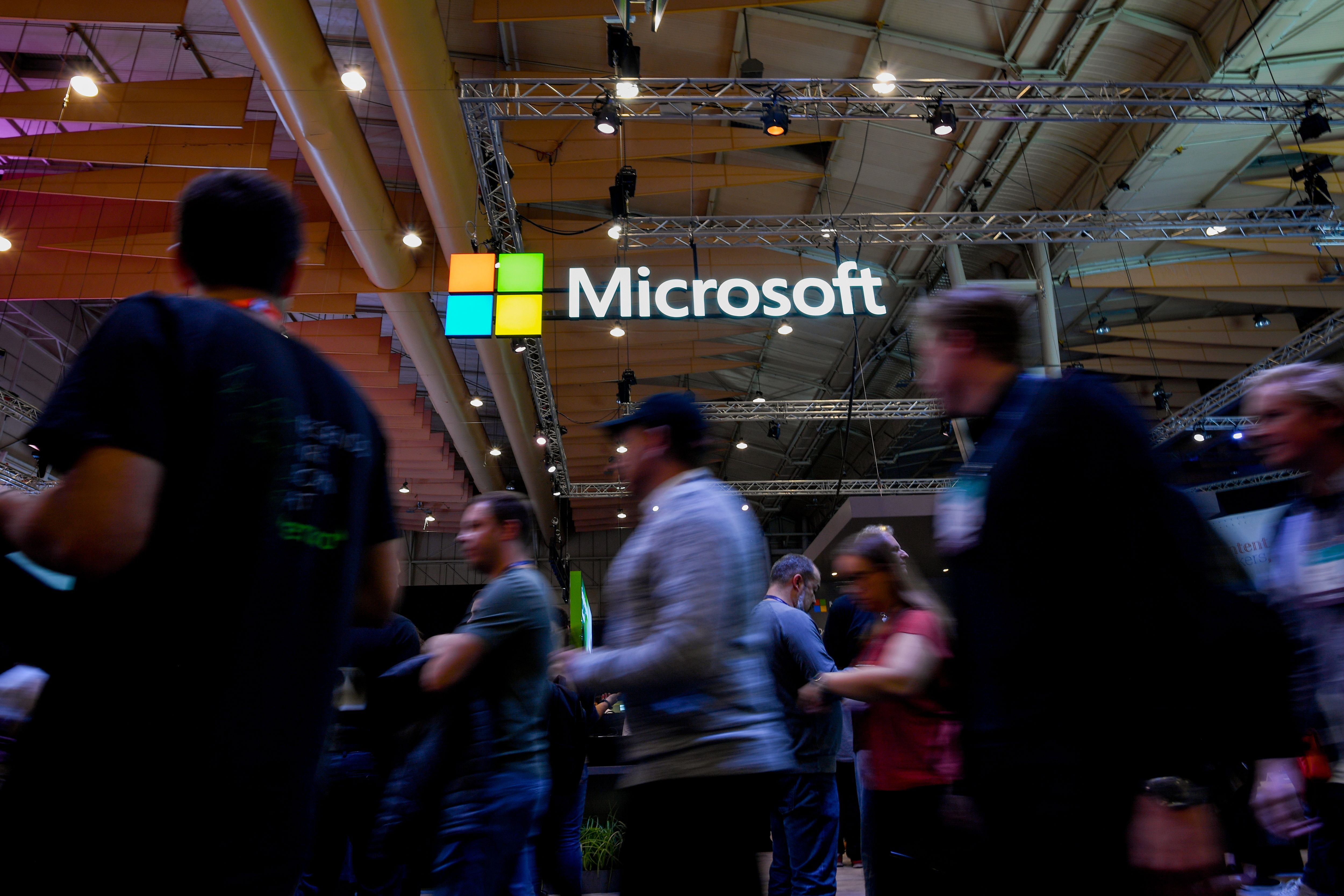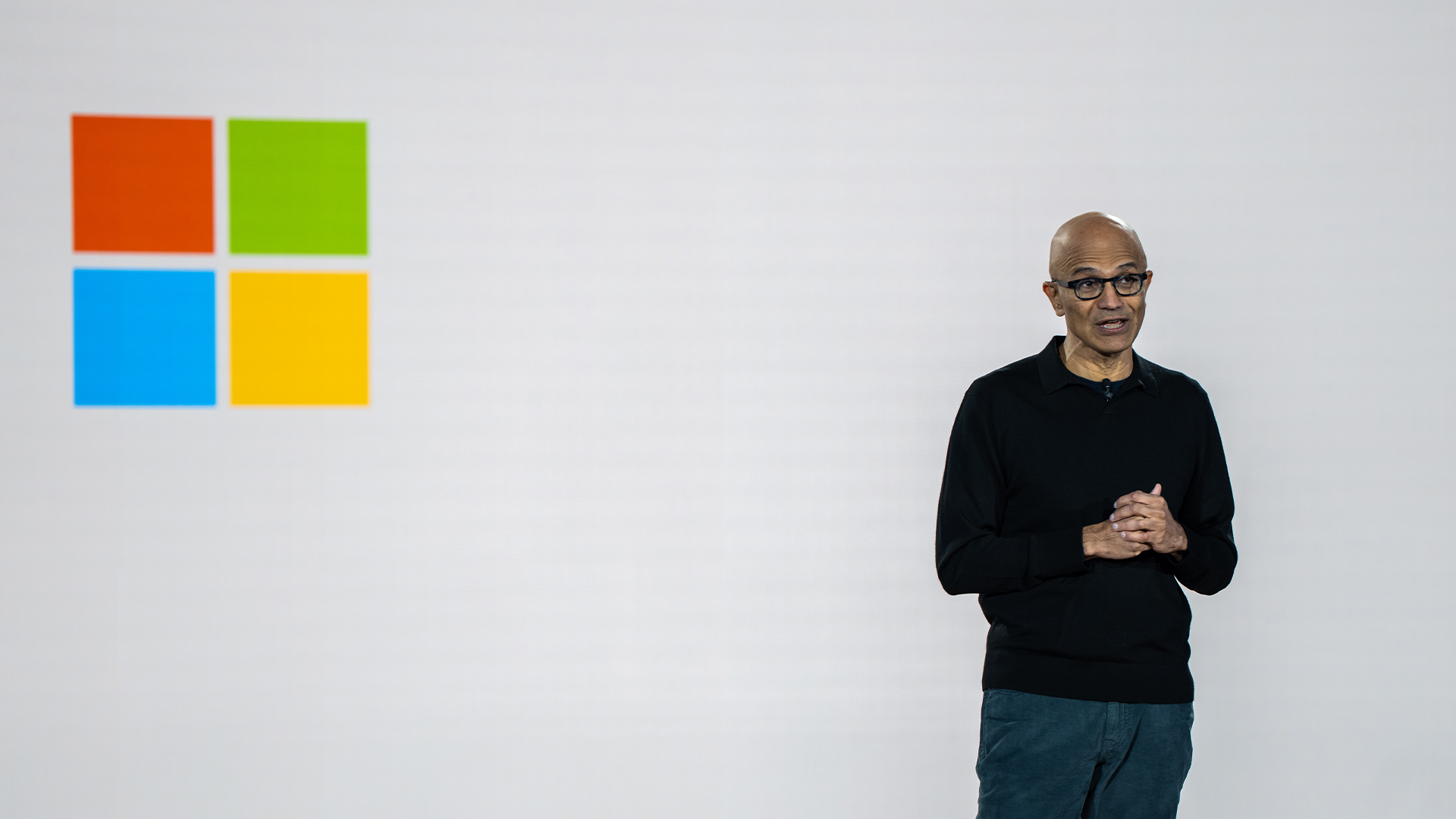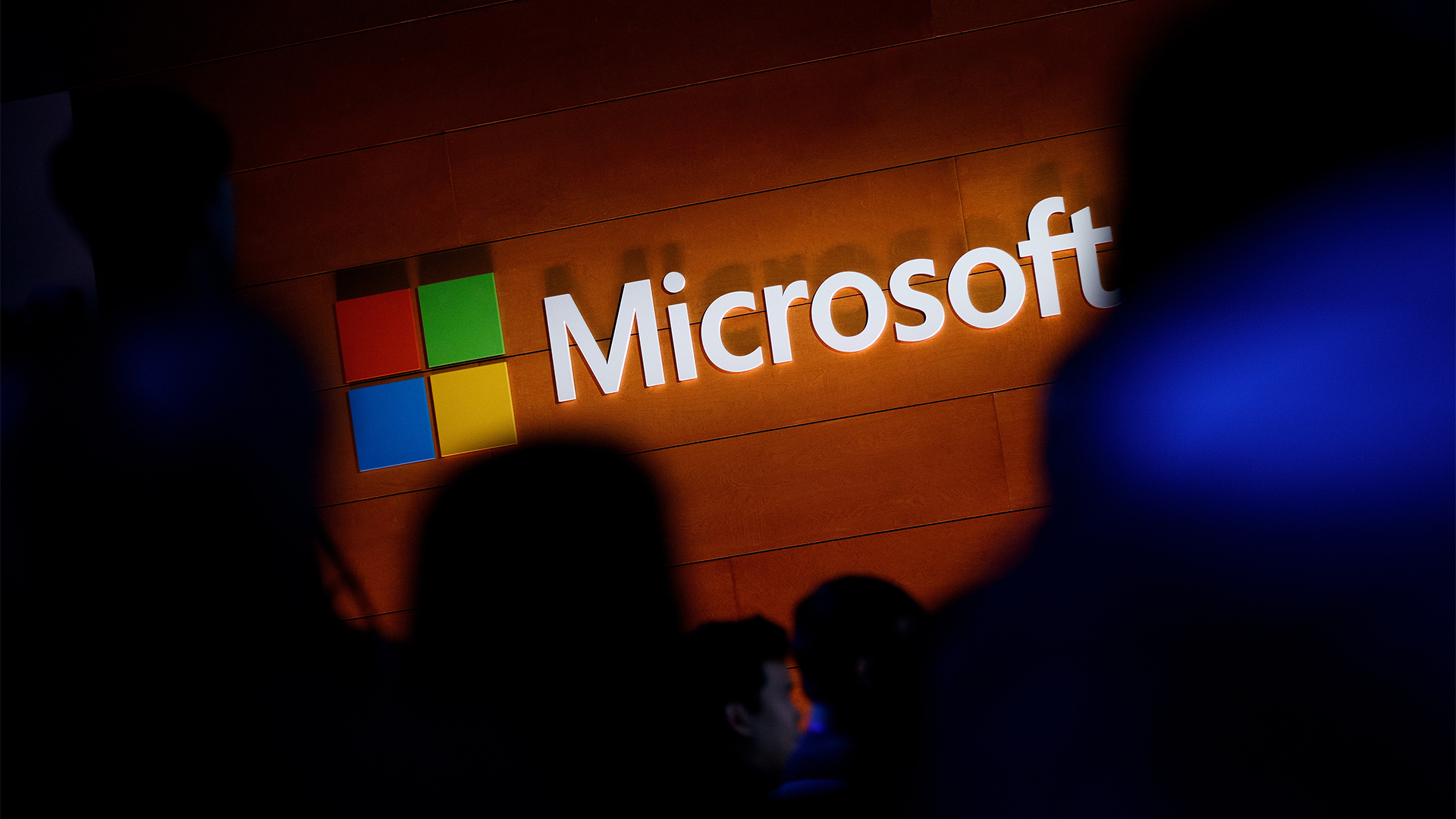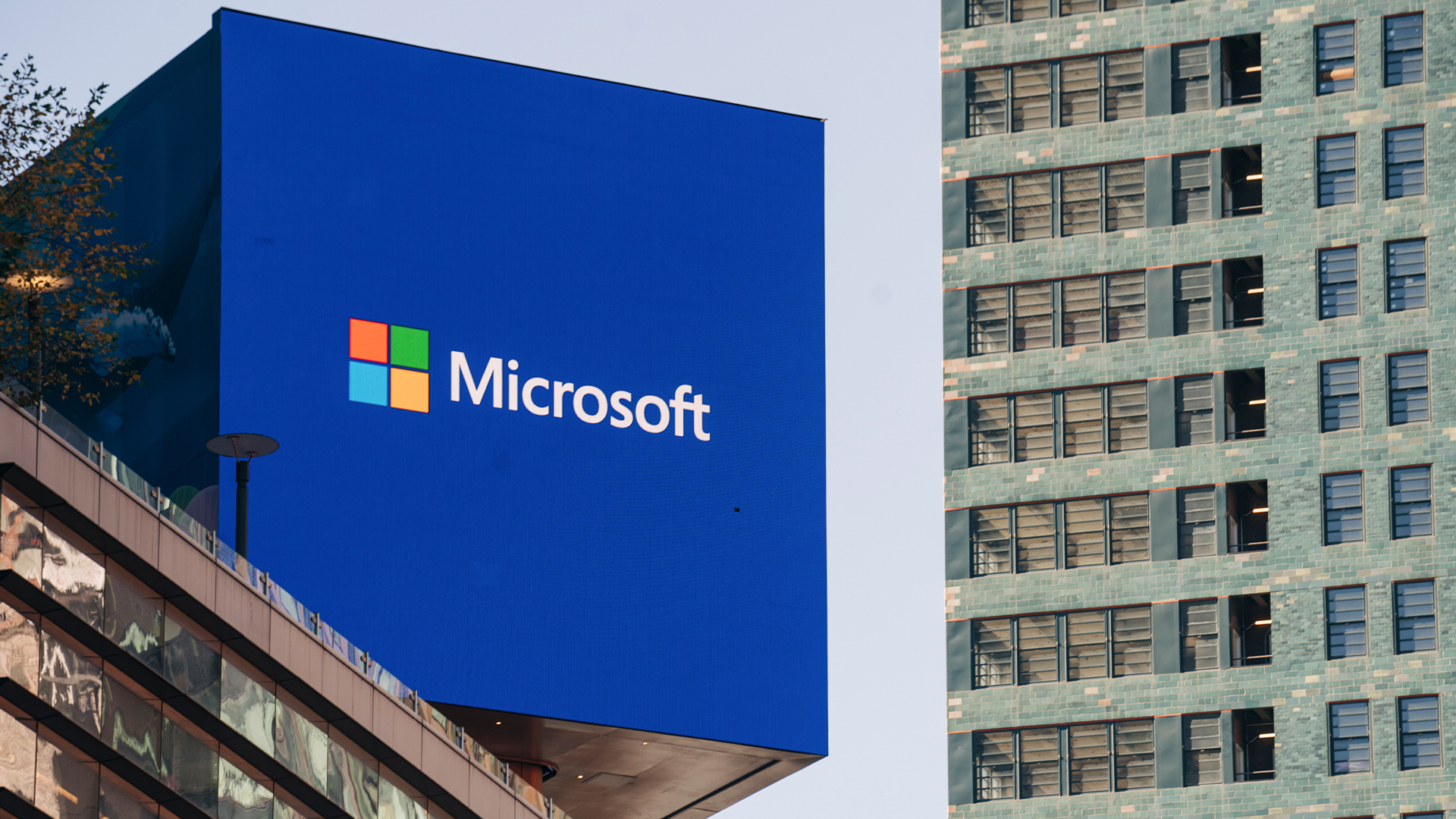Microsoft believes the UK can become a "global leader in AI", but regulation needs fixing
Microsoft has pledged to bolster AI investment in the UK, but has called for a broader legal and regulatory framework to ensure safety


Sign up today and you will receive a free copy of our Future Focus 2025 report - the leading guidance on AI, cybersecurity and other IT challenges as per 700+ senior executives
You are now subscribed
Your newsletter sign-up was successful
Microsoft believes the UK can become a global leader in artificial intelligence (AI) so long as it can get a grip on responsible governance and regulation of the technology.
Clare Barclay, CEO of Microsoft UK, said the country is “well placed” to establish itself as a global leader in AI across a range of industries, including healthcare, education, manufacturing, and agriculture.
"As one of the most digitally advanced economies in the world, the UK is well placed to lead the way in AI development and deployment. The home of innovative businesses, research institutions and world leading universities, the UK is quick to adopt emerging technologies and use them to solve real-world challenges," she said.
"For example, AI is helping improve patient outcomes in the National Health Service; monitor puffin and salmon populations in Scotland; and accelerate clinical research."
Barclay’s comments coincide with the release of a new report from the tech giant, Governing AI: A Blueprint for the UK, in which it specifically highlighted the country as having the necessary infrastructure to drive AI innovation.
Over the next three years, says Microsoft, it will spend £2.5 billion on expanding its AI data center infrastructure in the UK, bringing more than 20,000 of the most advanced GPUs to the UK by 2026.
It will extend its Accelerating Foundation Models Research (AFMR) program to give priority access to GPUs for the UK’s science and research community, the company confirmed, and make a multi-million-pound investment to train a million people in AI skills.
Sign up today and you will receive a free copy of our Future Focus 2025 report - the leading guidance on AI, cybersecurity and other IT challenges as per 700+ senior executives
RELATED WEBINAR

In particular, it plans to try and help the UK’s AI developer ecosystem to embed safety and security measures into their own systems and processes.
"We applaud the steps taken by the UK to contribute to the debate on AI governance globally, through publishing guidelines for secure AI development, producing a principles-based white paper on AI governance, and holding a global summit on AI safety," said Microsoft vice chair and president Brad Smith.
"The challenge facing policymakers around the world is how to establish a governance framework that will encourage the use of safe, secure and trustworthy AI for years to come."
Microsoft: AI safety must be center of mind
Microsoft recommended that the UK build upon new government-led AI safety frameworks, require safety brakes for AI systems that control critical infrastructure, and develop a broader legal and regulatory framework based on the technology architecture for AI.
Similarly, it should promote transparency and ensure academic and public access to AI and pursue new public-private partnerships to use AI to address the inevitable societal challenges that come with new technology.
"As technology moves forward, it’s just as important to ensure proper control over AI as it is to pursue its benefits. We are committed and determined as a company to develop and deploy AI in a safe and responsible way," Smith said.
"We also recognize, however, that the guardrails needed for AI require a broadly shared sense of responsibility and should not be left to technology companies alone. In short, tech companies will need to step up, and governments will need to move faster."
Emma Woollacott is a freelance journalist writing for publications including the BBC, Private Eye, Forbes, Raconteur and specialist technology titles.
-
 If Satya Nadella wants us to take AI seriously, let’s forget about mass adoption and start with a return on investment for those already using it
If Satya Nadella wants us to take AI seriously, let’s forget about mass adoption and start with a return on investment for those already using itOpinion The Microsoft chief said there’s a risk public sentiment might sour unless adoption is distributed more evenly
-
 Satya Nadella says a 'telltale sign' of an AI bubble is if it only benefits tech companies – but the technology is now having a huge impact in a range of industries
Satya Nadella says a 'telltale sign' of an AI bubble is if it only benefits tech companies – but the technology is now having a huge impact in a range of industriesNews Microsoft CEO Satya Nadella appears confident that the AI market isn’t in the midst of a bubble, but warned widespread adoption outside of the technology industry will be key to calming concerns.
-
 Microsoft CEO Satya Nadella wants an end to the term ‘AI slop’ and says 2026 will be a ‘pivotal year’ for the technology – but enterprises still need to iron out key lingering issues
Microsoft CEO Satya Nadella wants an end to the term ‘AI slop’ and says 2026 will be a ‘pivotal year’ for the technology – but enterprises still need to iron out key lingering issuesNews Microsoft CEO Satya Nadella might want the term "AI slop" shelved in 2026, but businesses will still be dealing with increasing output problems and poor returns.
-
 Microsoft quietly launches Fara-7B, a new 'agentic' small language model that lives on your PC — and it’s more powerful than GPT-4o
Microsoft quietly launches Fara-7B, a new 'agentic' small language model that lives on your PC — and it’s more powerful than GPT-4oNews The new Fara-7B model is designed to takeover your mouse and keyboard
-
 Microsoft is hell-bent on making Windows an ‘agentic OS’ – forgive me if I don’t want inescapable AI features shoehorned into every part of the operating system
Microsoft is hell-bent on making Windows an ‘agentic OS’ – forgive me if I don’t want inescapable AI features shoehorned into every part of the operating systemOpinion We don’t need an ‘agentic OS’ filled with pointless features, we need an operating system that works
-
 Microsoft's new Agent 365 platform is a one-stop shop for deploying, securing, and keeping tabs on AI agents
Microsoft's new Agent 365 platform is a one-stop shop for deploying, securing, and keeping tabs on AI agentsNews The new platform looks to shore up visibility and security for enterprises using AI agents
-
 'It's slop': OpenAI co-founder Andrej Karpathy pours cold water on agentic AI hype – so your jobs are safe, at least for now
'It's slop': OpenAI co-founder Andrej Karpathy pours cold water on agentic AI hype – so your jobs are safe, at least for nowNews Despite the hype surrounding agentic AI, OpenAI co-founder Andrej Karpathy isn't convinced and says there's still a long way to go until the tech delivers real benefits.
-
 This new Microsoft tool lets enterprises track internal AI adoption rates – and even how rival companies are using the technology
This new Microsoft tool lets enterprises track internal AI adoption rates – and even how rival companies are using the technologyNews Microsoft's new Benchmarks feature lets managers track and monitor internal Copilot adoption and usage rates – and even how rival companies are using the tool.


